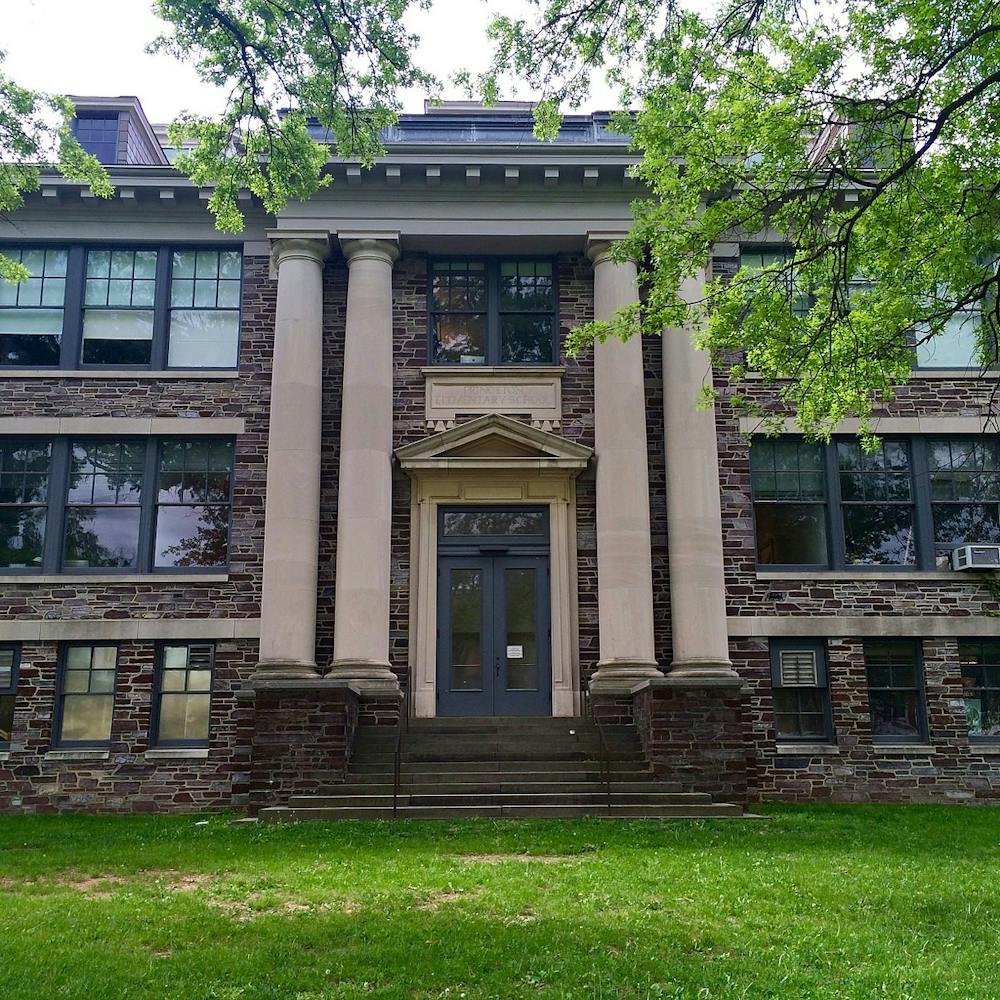Four filmmakers, Lynne Sachs, Emily Hubley, Su Friedrich, and Edith Goldenhar, showcased short films at a special “Women in Film” session of the Black Maria Film Festival on Friday, Feb. 7.
Screened at the Jimmy Stewart theater, the short films ranged across documentary, animation and experimental genres. Despite the stylistic diversity, all four works explored time, particularly as related to family and the complications of intergenerational relationships.
Each screening was followed with a Q&A led by Festival Executive Director Jane Steuerwald.
Lynne Sachs, who has worked as a documentary professor at Princeton University and whose new work Film About a Father Who is on view at the MOMA, kicked off the night with short film A Month of Single Frames. The experimental documentary is composed of footage shot by legendary queer-feminist filmmaker Barbara Hammer in 1998 during a month-long artist residency at a secluded beach. Before Hammer’s death in 2018, she gifted the footage to Sachs and was recorded reading aloud from a journal she kept during this brief time.
Melding past and present, Sachs edited the footage and reading into a meditation on the small treasures of life before the “sadness of departure” made inevitable by death. The images in the movie work with simplicity to establish layers of rich beauty and complexity. Water playfully dances in and out of the sunshine and colored gel flags reflect rainbow-colored squares onto the raked sand dunes. Amid a background of rustling reeds, panoramic vistas, and sunsets captured in single-frame shots, Hammer wonders: “Is this why we make busy? So we don’t have time to contemplate this endless expanse called life?”
With lines of poetry written by Sachs sporadically overlaid, the piece takes on significance as a poignant memorial to Hammer by a friend.
Animator Emily Hubley’s continued this exploration of time and human connection by deconstructing mother-daughter relationships in three films.
Animated short Her Grandmother’s Gift recounts the story Hubley’s mother, Faith Hubley, would most want to tell her granddaughter if she did not get to see her grow up. Focusing on the stigma of menstruation passed down by her own mother, the film tracks her path to embracing womanhood, which culminates in images of her grandchildren. Emphasizing that her grandchildren should be free from shame, she describes one of her grandchildren as “making the air dance.” The sounds of rushing wind are overwhelming, giving the young child’s unchecked playtime the same gravity as great natural forces.
Hubley then screened an animated short produced by her mother in 2001, Northern Ice, Golden Sun. The third film, made by Emily Hubley, bridged her mother’s creative work with her own, instigating a conversation between mother and daughter that stretches beyond time and space in Faithy, hey.
Using quotes from her mother’s journals following her death, the short film explores familial distance. Her mother felt herself to be “forever on the margins” of her daughter’s life, occupying the spaces when it is convenient to call like “the way back from the airport or a party.” Her daughter describes how she didn’t stay in the hospital with her mother during the moments she passed away and how she was home in time to drink a martini before dinner. Hubley is in the process of creating a longer animated work featuring her mother’s journals.
Renowned filmmaker and Princeton professor Su Friedrich, who is currently working on an online encyclopedia of female editors, screened her avant-garde short film Queen Takes Pawn. Friedrich juxtaposes archival home movie footage of a child and her parents from the 1950s with text from Alice's Adventures in Wonderland and a modern-day tour of a home decked out in retro furniture. Featuring old radios, blossoming flowers, hanging lanterns, a mantlepiece memorial to deceased family, and a wooden doll for children—Friedrich seems to lament the transition from childhood to adulthood. The magic of an old home movie is less pronounced as an adult touring a house with outdated furniture. Time has passed, and Wonderland is no more.
Despite the intimate appearance of the short film, Friedrich leaves room for the audience to take sentimentality with a pinch of salt. The archival footage is not of her childhood self, nor is that home an old haunt filled with memories. Instead, the old footage is of one of her aunts and the house was the setting of a weekend getaway that merely reminded Friedrich of her grandmother.

Edith Goldenhar rounded out the night with her documentary film Return to Calais made in partnership with production company RockPaperScissors. The connecting thread of time and intergenerational relationships made one final knot in Goldenhar’s interrogation of her grandmother’s wartime memories and their lasting effect impact on her own psyche.
Using her grandmother’s old journals, Goldenhar tells the story of her Jewish grandmother’s escape from Nazi-occupied Belgium after receiving deportation orders. The documentary dwells on the uncertainty of those first days of war and the inimitable impact they had on Goldenhar’s grandmother. May 10, 1940 became the never-ending day she could not escape or forget.
Goldenhar’s grandmother ultimately survived the war because of the kindness of a woman who took her in and hid her until liberation. Her granddaughter tells the story with the help of old photographs, archival footage, artifacts including a parachutist’s map printed on silk, and videos of a meeting that reunited her grandmother and her savior once both were old gray.
The story continues into the present with Goldenhar’s own efforts to be like the woman who took in her grandmother and saved her life. She volunteered with charity Care4Calais, which provided aid to those living in a now-destroyed refugee camp on the French coast, and feels a moral obligation to refugees across the globe.
Beyond the personal relationships that stretch across time in each of the films, Goldenhar’s “Return to Calais” shows that beliefs and values can take up similar evolutions. Just as our connections to people living in the past never die, neither does the history that colored their lives.








